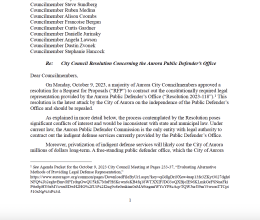The bill makes all communications during the restorative justice process made by all participants in the process confidential unless: • All participants in the process, including the restorative justice program or restorative justice facilitator, consent in writing to waive confidentiality of specific communications for a stated purpose; • An offender or other participant commits a chargeable offense as part of a restorative justice or restorative practice communication; • A report is made by a statutory mandatory reporter of behavior that threatens the safety of a child under 18 years of age; or • Disclosure of a communication is necessary and relevant to an action alleging willful or wanton misconduct of a restorative justice facilitator or organization. The bill requires the restorative justice program or facilitator to disclose those exceptions and any other applicable exceptions prior to starting the process. The bill requires the court, during the arraignment advisement, to inform the defendant that if convicted the sentence may include restorative justice practices. The bill allows the district attorney to include restorative justice practices as part of a recommended sentence in a plea bargain. The bill directs that the presentence report must include an assessment of the defendant's suitability for restorative justice practices.
Year
2017
Current status
- Governor Signed (03/20/2017)
- Sent to the Governor (03/16/2017)
- Senate Third Reading Passed - No Amendments (03/09/2017)
- Senate Second Reading Special Order - Passed - No Amendments (03/08/2017)
- Introduced In Senate - Assigned to Judiciary (02/22/2017)
- House Third Reading Passed - No Amendments (02/21/2017)
- House Second Reading Passed with Amendments - Committee (02/17/2017)
- House Committee on Judiciary Refer Amended to House Committee of the Whole (02/14/2017)
- Introduced In House - Assigned to Judiciary (01/11/2017)
